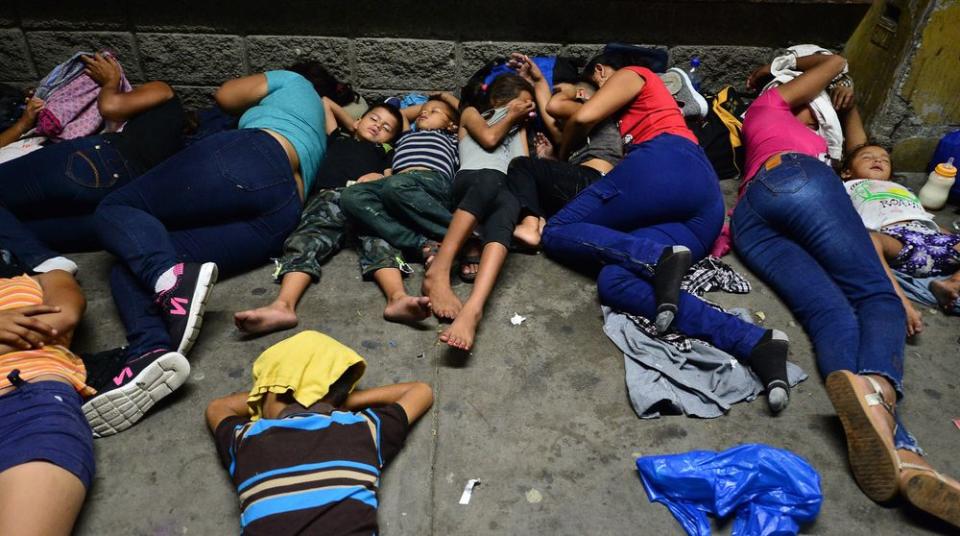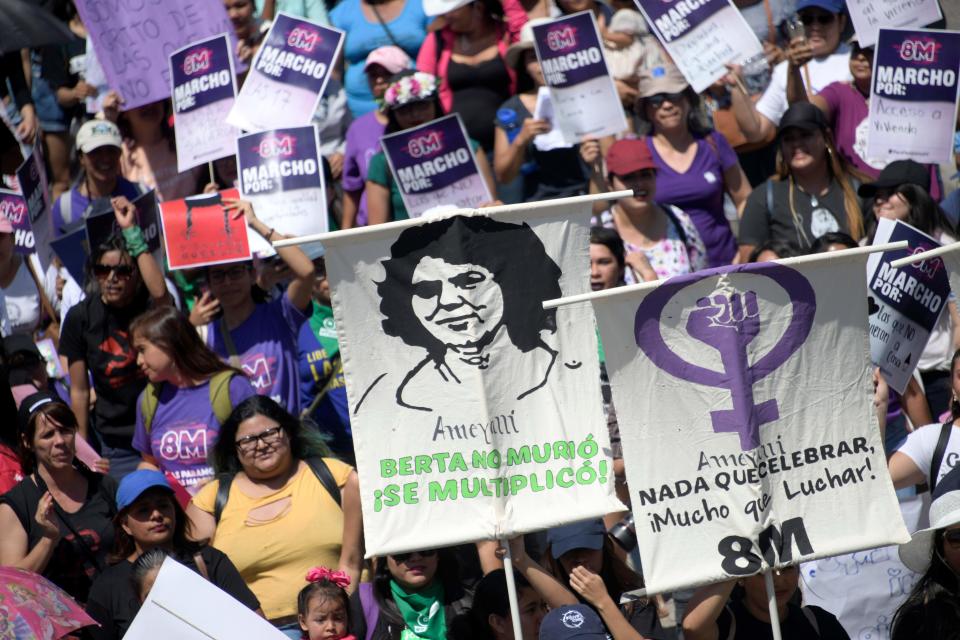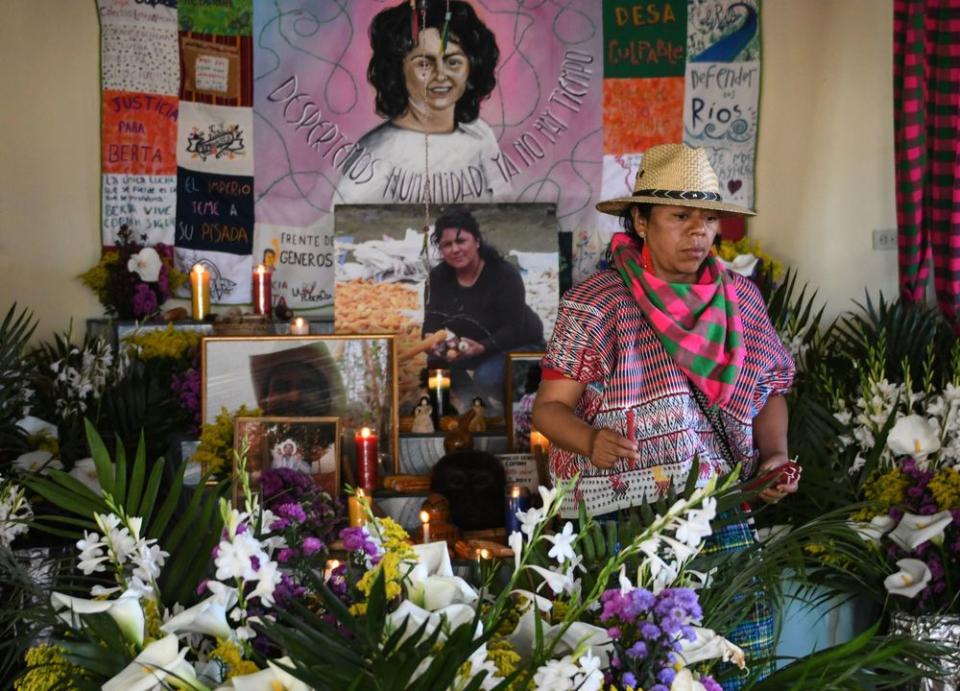New Reports of Alarming Violence Against Women in Honduras

There are new alarming reports of violence against women in Honduras. The Violence Observatory at the Honduran National Autonomous University claims that at least 15 women have been murdered in the first two weeks of 2020. Many Honduran women join migrant caravans to escape violence and poverty in their county under the government of Juan Orlando Hernández. The Guatemalan government reported that at least 4,000 people entered Guatemala from Honduras last week hoping to later travel to the U.S. Many migrant women are mothers and travel with their young children hoping for a better future.

The murder of indigenous environmental activist Berta Cáceres put a spotlight on this epidemic of violence in the country. Four years after she was shot and killed by hired hitmen in her home in La Esperanza, last month seven men were sentenced to prison for her 2016 murder. Her assassination was the only way to silence her and stop her activism. Right before she was murdered, she had been battling the construction of a hydroelectric dam on sacred Lenca land on the Gualcarque River. A court ruled that the hired hitmen were linked to DESA, the Honduran company behind the Agua Zarca dam that she fought against.

Berta has since become a symbol of resistance of violence against women, with altars being built in her honor in Honduras and banners with her image being held at women’s marches.

“This is a late conviction. It has been almost four years of seeking justice. It is the product of a rather difficult and painful process that has been putting us as victims in direct dispute with a murderous and aggressive state, and they produced the minimum consequences that the state could have given,” Berta’s daughter Laura Zúñiga Cáceres told Democracy Now! in December.

In November of 2018, during the International Day for the Elimination of Violence Against Women, an endless sea of pairs of shoes belonging to murdered women were displayed in the streets of Tegucigalpa as a protest demanding justice for over 5,000 women killed in the past 15 years in Honduras.
In many cases, the murderers of women in Honduras are not hitmen (like in the case of Berta Cáceres) but those closest to them. Statistics released by the United Nations Office on Drugs and Crime calculated that of “a total 87,000 female homicide cases worldwide in 2017, some 50,000 — or 58 percent — were committed by the victims’ intimate partners or family members.”

Politico cites reports claiming that as of 2015, Honduras is one of the countries with the highest rates of violent deaths of women, including war-ravaged nations like Afghanistan and Syria. Studies show that murder is the second-leading cause of death for women of childbearing age in Central American countries like Honduras, where gender-based crimes and gang violence are common and often go unpunished.

 Yahoo Noticias
Yahoo Noticias 
